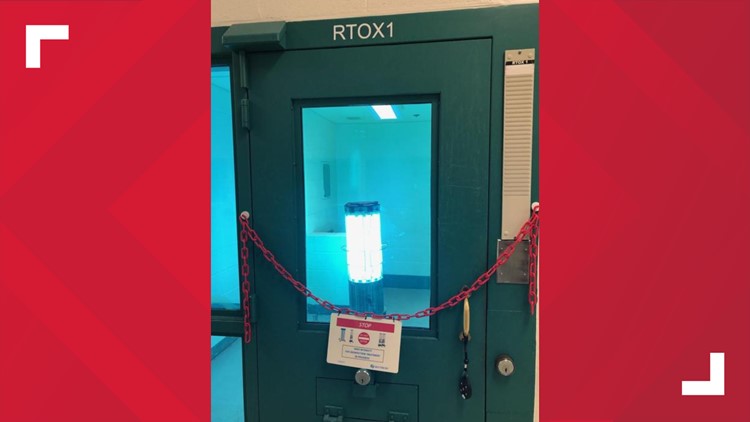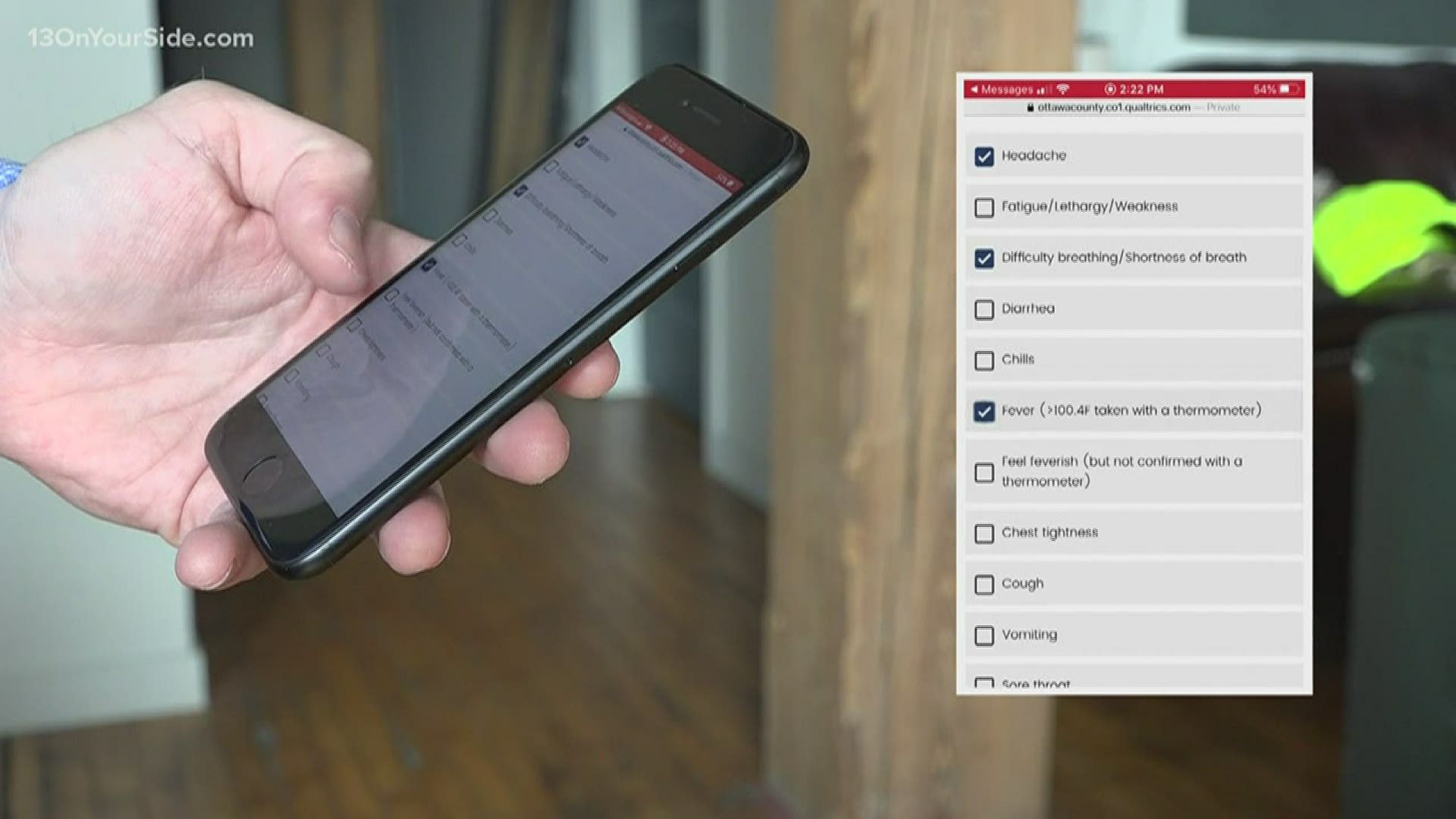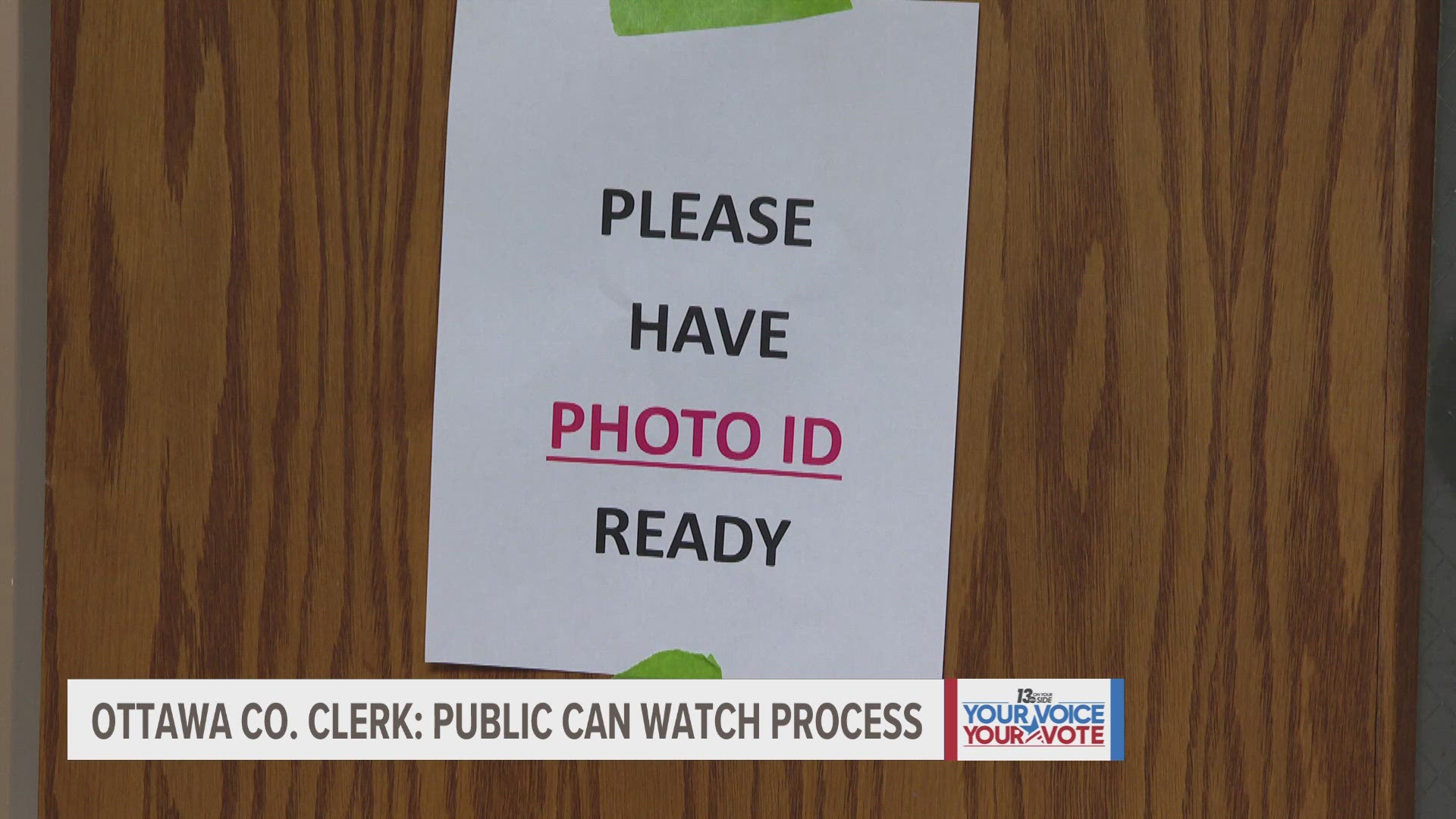OTTAWA COUNTY, Mich. — (Grand Haven Tribune) - Ottawa County Sheriff Steve Kempker said his department had already been looking into the purchase of an ultraviolet light emitter when the COVID-19 outbreak began.
Now, a month into use of the new, “about $35,000” machine, Kempker said the difference is noticeable. They refer to the newly purchased device as a “bug zapper,” he said.
“Overall, it gives us a cleaner, safer environment for inmates and staff,” he said.
Kempker noted that every jail official is fearful of infections – such as stomach bugs, MERSA and now COVID-19 being spread around the contained areas. The sheriff believes that the machine, their standard cleaning routines, enhanced care procedures and the lower inmate population has all contributed to keeping the remaining inmates and staff free of the COVID-19 virus.
Ultraviolet is an invisible band of light in the light spectrum after the colors of the rainbow, explained Larry Perez, vice president and vertical market director for Infection Prevention Technologies, a division of Skytron, the manufacturer of the device. Skytron is located in Grand Rapids.
There are three forms of ultraviolet light, Perez said – UVA, UVB and UVC. The first two are in the atmosphere.
“That’s how you get tanned and sunburned,” Perez explained.
The strongest form, UVC, is blocked by the ozone layer, he said. When reproduced on Earth, it is like irradiation.
Perez said that the UVC emits pulses that are between microwaves and X-rays.
“Pulsing is very disruptive to pathogens and micro-organisms,” he said. “It basically breaks down DNA.”
Perez said the UVC lights need to be rated at 253.7 to 254 nanometers, “then you’re getting a good product.”
“It has to be strong enough to deliver enough light to sanitize a specific area.
The Skytron emitters have smart dosage technology, Perez said. The sensors take in the room size and reflectivity. An algorithm determines how strong and how long the treatment needs to be. The machine also has a sensor that will cause the machine to shut down if there is any movement in a room.
Perez emphasized that looking at the light while in the same room would cause serious damage to your eyes. The light does not go through glass.
Kempker said jail staff has been trained in the use of the light, which is mainly operated during the night.
The emitter is placed in the room needing to be cleaned and operated remotely. Jail staff also chain off the door to the room and add a warning sign so that nobody enters the room while the light is operating. The device is set off remotely and the cleaning time depends on the size of the room.
Kempker said they looked at test results from the company and talked to officials at other jails where the lights were in use before first using a demo unit for a couple of weeks and then purchasing the light. Based on the results, Kempker said they are considering purchasing another unit for the juvenile detention center.
“UV light technology has been around for a long time,” Kempker said. “Hospitals use UV lights in air ducts and water parks run water through UV lights.”
Perez confirmed that the technology has been around since the late 1800s, and that its use has been endorsed by the CDC and more recently by the FDA.
The Skytron official said they have done bacterial colony tests before and after treatments at some jails to observe the effectiveness of the lights. Independent laboratories have also done testing.
Even though facilities like jails have proper cleaning protocols for disinfecting their facilities, the products they use are often not used properly, Perez said.
“Most disinfectants have a 10-minute contact time,” he said. “How practical is it to keep the surface wet for 10 minutes?”
Perez noted that most facilities also dilute the disinfectants to make them safer for use by the people applying them, and also so it can’t be used as a weapon.
“Cleaning is important, but it’s not disinfection,” he said. “The UVC disinfects surfaces and the air,” Perez added, noting that the COVID-19 virus can remain airborne for three hours.
While it might be nice to have a UVC emitter in one’s home, Perez said they are costly and there are dangers to their use.
“They can’t be put uncontrolled on the consumer market,” he said.
Instead, his company is looking at putting the devices on passenger trains, into schools and child care centers, and possibly restaurants and retail stores.
Perez said that he is thankful that the emitters were already in use before the COVID-19 outbreak. The company has been in business for 12 years.
“My driving force is I want to keep people safe,” he said. “This could be a solution to reopening a lot of businesses.”
Perez cautioned anyone thinking of purchasing a small UV light emitter for his or her home should make sure that it is an EPA-registered device.
“I bought one (a cabinet) for my wife, who works in health care,” he said. “She puts her phone and badge in it when she comes home from work.”
Kempker said they hope to be reimbursed for the unit through federal funds supplied to organizations because of the COVID-19 pandemic. Still, if it keeps the county from having to pay for inmate hospitalization, it will pay for itself, he added.
RELATED VIDEO:
More Ottawa County News on 13 ON YOUR SIDE:
- COVID-19 contact tracing survey helping Ottawa County 'react a lot sooner', health officials say
- Ottawa County concert venue 'can survive' after flood of community donations
- Neighbors help protect elderly couple's home from Grand River flooding
- Conviction stands in death of Ottawa County woman who was shot while snowblowing
- Closed parking lots deter crowds from Grand Haven State Park
►Make it easy to keep up to date with more stories like this. Download the 13 ON YOUR SIDE app now.
Have a news tip? Email news@13onyourside.com, visit our Facebook page or Twitter. Subscribe to our YouTube channel.




